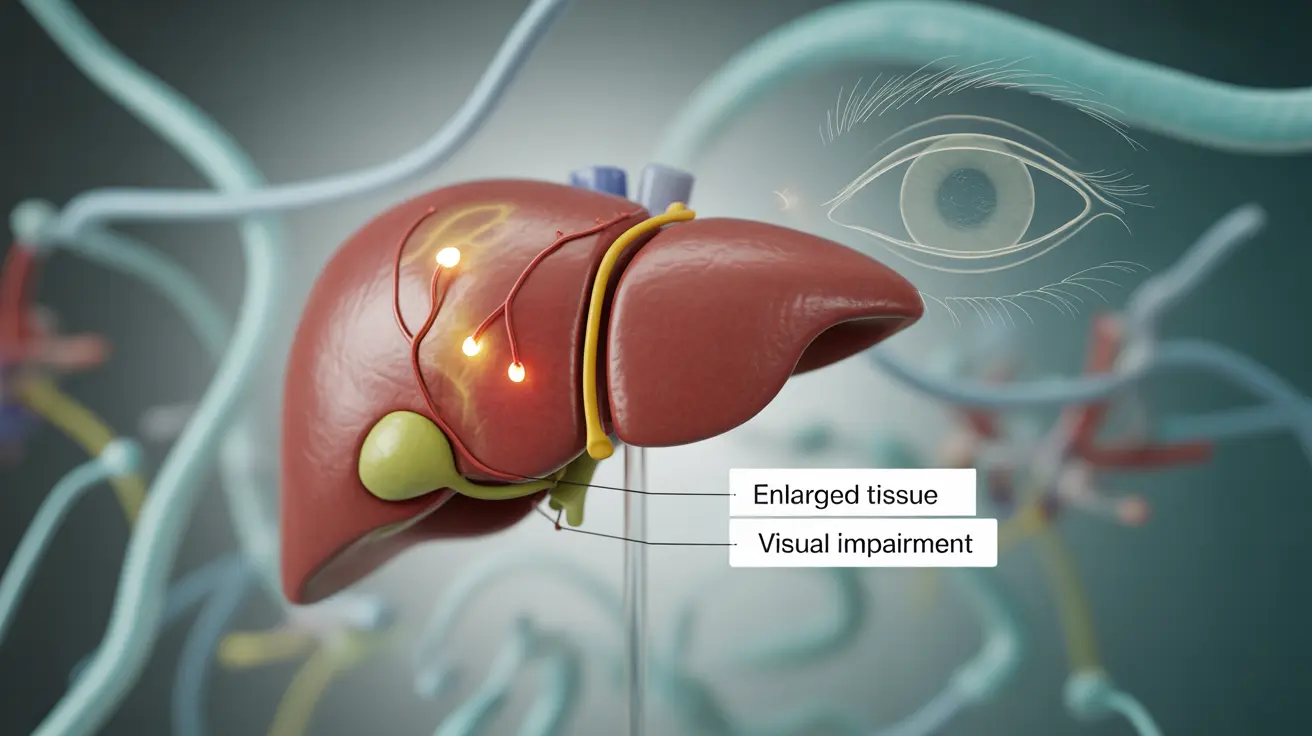Having too much vitamin A in your body, also known as hypervitaminosis A, can lead to serious health complications. While vitamin A is essential for maintaining healthy vision, immune function, and cell growth, excessive amounts can become toxic. Understanding the signs, causes, and treatment of vitamin A toxicity is crucial for maintaining optimal health and preventing potentially dangerous complications.
This comprehensive guide explores the risks of excessive vitamin A consumption, its effects on different populations, and what you need to know about prevention and treatment.
Understanding Vitamin A Toxicity
Vitamin A toxicity occurs when there's an accumulation of too much vitamin A in your body, either from dietary sources or supplements. While it's rare to develop toxicity from food sources alone, regular overconsumption of vitamin A supplements or certain medications can lead to dangerous levels in your system.
Common Signs and Symptoms
When you have too much vitamin A in your body, various symptoms may develop, ranging from mild to severe:
- Blurred vision and headaches
- Nausea and vomiting
- Skin changes (peeling, dryness)
- Joint and bone pain
- Dizziness
- Hair loss
- Liver enlargement
These symptoms typically develop gradually and may worsen over time if exposure to high vitamin A levels continues.
Risks During Pregnancy
Pregnant women must be particularly careful about vitamin A intake, as excessive amounts can cause serious birth defects. High levels of vitamin A during pregnancy may affect:
- Fetal development
- Brain and heart formation
- Facial features
- Risk of miscarriage
Healthcare providers carefully monitor vitamin A levels in pregnant women and typically recommend avoiding high-dose supplements unless specifically prescribed.
Causes and Sources
Several factors can contribute to developing too much vitamin A in your system:
Supplement Use
Taking high-dose vitamin A supplements or multiple supplements containing vitamin A can lead to accumulation over time.
Medication Side Effects
Certain medications, particularly retinoid treatments for acne, can increase vitamin A levels in the body.
Dietary Sources
While rare, consuming large amounts of vitamin A-rich foods like liver can contribute to elevated levels, especially when combined with supplements.
Diagnosis and Treatment
Healthcare providers diagnose vitamin A toxicity through:
- Blood tests to measure vitamin A levels
- Liver function tests
- Physical examination
- Review of supplement and medication use
Treatment typically involves:
- Immediately stopping vitamin A supplementation
- Discontinuing any medications causing excess vitamin A
- Monitoring liver function
- Dietary modifications
- Supportive care for symptoms
Prevention and Long-term Management
To prevent vitamin A toxicity, consider these important steps:
- Consult healthcare providers before starting supplements
- Follow recommended daily allowances
- Read supplement labels carefully
- Monitor total vitamin A intake from all sources
- Be especially cautious during pregnancy
Frequently Asked Questions
1. What are the common symptoms of having too much vitamin A in the body? Common symptoms include headaches, blurred vision, nausea, skin changes, joint pain, and hair loss. Severe cases may also affect liver function.
2. How does taking too much vitamin A affect pregnant women and their babies? Excessive vitamin A during pregnancy can cause serious birth defects, affecting the baby's brain, heart, and facial development. It may also increase the risk of miscarriage.
3. What causes vitamin A toxicity and can it happen from diet alone? Vitamin A toxicity typically occurs from supplement overuse or certain medications. While rare, it can occur from dietary sources alone, particularly from frequent consumption of vitamin A-rich organ meats.
4. How is vitamin A toxicity diagnosed and treated by doctors? Doctors diagnose vitamin A toxicity through blood tests, liver function tests, and physical examination. Treatment involves stopping vitamin A supplementation, monitoring liver function, and managing symptoms.
5. What are the risks of long-term high intake of vitamin A supplements or medications? Long-term excessive intake can lead to chronic liver damage, bone problems, vision changes, and other serious health complications. Regular monitoring and proper dosing are essential when taking vitamin A supplements or medications.




